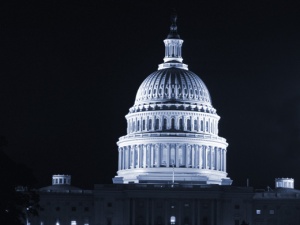 We are so bombarded by noise at times it’s hard to think. The raging debates around coronavirus public policy, racial injustice, and the presidential election form a perfect storm of noise. A cacophony of this magnitude only naturally sends us to seek shelter from the storm.
We are so bombarded by noise at times it’s hard to think. The raging debates around coronavirus public policy, racial injustice, and the presidential election form a perfect storm of noise. A cacophony of this magnitude only naturally sends us to seek shelter from the storm.
Don’t give in to the temptation of numbness. Where there is noise there is a signal. Sometimes you have to listen hard for it, but it’s worth the effort.
Where there is crisis there is learning.
During the entirety of the Covid-19 crisis, my own company has been digging deeper into data, questioning every one of our prior assumptions, revisiting foundational convictions that have proven to be upended by circumstances. It’s been meticulous work, exhausting in many ways, but every bit of analysis has been worth the long hours of difficult discussion. Through a highly Socratic process, we have reinvented our business model for the better.
All of that has me thinking: What else might these crises be telling us? What else can we learn from the turmoil all around us if we don’t allow ourselves to hide from the rhetorical barrage?
Here are a few ideas penetrating my consciousness in the realms of global warming, trusted communications, and government core competency.
Everyone Doesn’t Have to Drive Every Day
I live in Los Angeles. I look outside and the air is clear. The freeways are empty. Coincidence? An accidental moment without significance? Perhaps that’s the case, as some have argued the temporal reduction in emissions and anecdotal benefits of fewer cars on the road, but what if it were sustainable? Could one of the answers to climate change be so obviously right before our eyes? I’m not a scientist with the credentials to make such an assessment, but I certainly would like the problem studied objectively.
Until a few months ago, we woke up daily with the habit of getting in our cars and driving to work no more questioned than brushing our teeth. It was just something we did. In no previous discussion of environmental distress did I hear anyone credibly propose getting more than half our cars off the road, because the proposition would have been a non-starter. Then one day a bunch of us stopped getting in our cars. Poof, just like that, we were working from home. We also got the commute time back for more productive work, and while I’m at it, how about all of those car accidents that stopped because people behind the steering wheel weren’t texting. We will go back to the office regularly at some point, but does it have to be every day, for every person? Not in my world. The benefits are yet to be understood. Let’s understand them.
Media Desperately Needs Reinvention
We don’t understand fake news. We don’t even have a common definition of fake news. Some of us define fake news as the biased reporting of a media brand. Others identify it as the blatantly false information peddled to the public for effect without fact-checking. I remain a fan of journalism and consume branded media daily with my own filter for accuracy, but my litmus test for truth will never be yours. Until we can agree on some form of objectivity, we will continue to debate the source of our information rather than the implications of the information’s validity.
This is not healthy. If we can’t agree on what constitutes an empirical fact, the clear and present danger to our decision making is likely to have a catastrophic impact. No source, however reputable, is without fault. The New York Times isn’t sure what belongs on its op-ed page. Facebook as a public platform of democratic exchange has become an unmitigated disaster in its inability to parse purposely placed disinformation in unending disguises, free or paid. Elections are won cynically on ad volume, fueled by cash, fueled by special-interest investment in yet more noise. We know we need journalism, but given how few people want to pay for it and how compromising its ad base has become, its business model has failed. Whoever reinvents this business model is going to change the world. I believe this will happen, because accurate information is not a luxury but a necessity.
Readiness Is Pragmatic
Perhaps my most troubling observation is how flat-footed the United States has been caught with the ramifications of the pandemic. Of course no one knew any sooner than late 2019 that Covid-19 could interrupt every aspect of our lives, but we’ve been around long enough to know pandemics exist. How could we have so few of the necessary medical supplies or personal protective equipment in stockpiles for such a calamity? How could we not have a clear chain of command between federal, state, and local authority? How could we shut down the nation for three months and not make strides on healthy measures to address the next semester of student education?
We are a pragmatic nation known to focus our vast resources on innumerable global crises throughout our history, but have we become so focused on the here and now that we aren’t paying enough attention to scenario planning and game theory? If we don’t think carefully about reallocating resources to planning for the unknown, the chances we will be struck down even harder by the next surprise attack would seem to be 100%.
Do yourself a favor: Tune out the noise, but tune in the learning. Opportunity is always around us if we muster the discipline to trade demoralization for inspiration. That’s how we get better.
The alternative is to stick with what we’ve got. I hope we’ve learned that’s not much of an option.
_______________
Image: Pixabay



